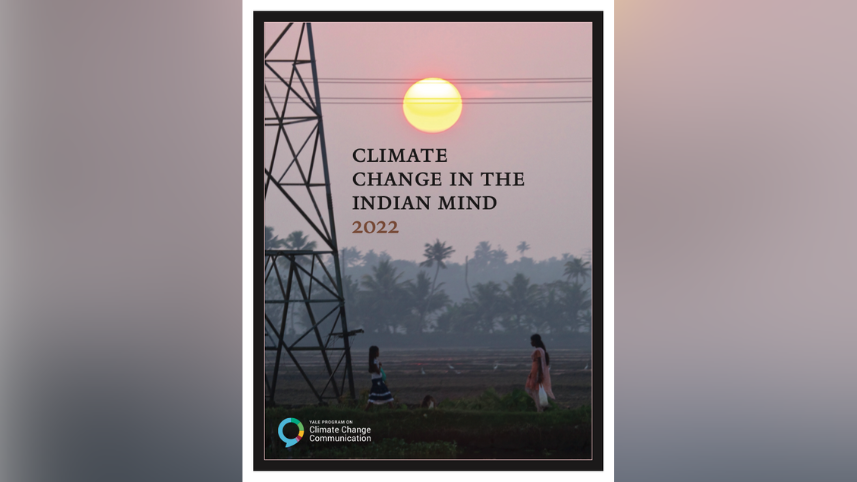A new report from the Yale Program on Climate Change Communication offers a plethora of insights on the attitudes of the Indian public toward climate change, including "current public climate change awareness, beliefs, attitudes, policy support, and behavior, as well as public observations of change in local weather and climate patterns and self-reported vulnerability to extreme weather events."
Told "Global warming refers to the idea that the world's average temperature has been increasing over the past 150 years, may be increasing more in the future, and that the world's climate and weather patterns may change as a result" and asked "What do you think? Do you think that global warming is happening?" 84% of respondents agreed that global warming is happening, while 6% disagreed and 10% either weren't sure or didn't answer.
Asked "If global warming is happening, do you think that it is caused mostly by human activities, by natural changes in the environment, some other cause, or none of these because it is not happening?" 57% of respondents chose human activities, while 31% chose natural changes in the environment, 1% chose some other cause, 2% chose none of these because it is not happening, and 10% either indicated they didn't know or offered no answer.
Asked for their views about "[a] national program to teach all Indians about global warming" to help deal with environmental problems, 74% of respondents indicated that they strongly favored such a program, while 9% indicated that they somewhat favored it, 1% indicated that they somewhat opposed it, 2% indicated that they strongly opposed it, and 14% either indicated that they didn't know or offered no answer.
The survey was conducted with a nationally representative survey of 4619 Indian adults between October 21, 2021, and January 9, 2022. The survey (which was translated into 12 different languages) was administered via mobile telephone using predictive dialing technology and computer-assisted telephone interviewing. The margin of error for the full sample is +/- 1.4 percent points at the 95% confidence level.


